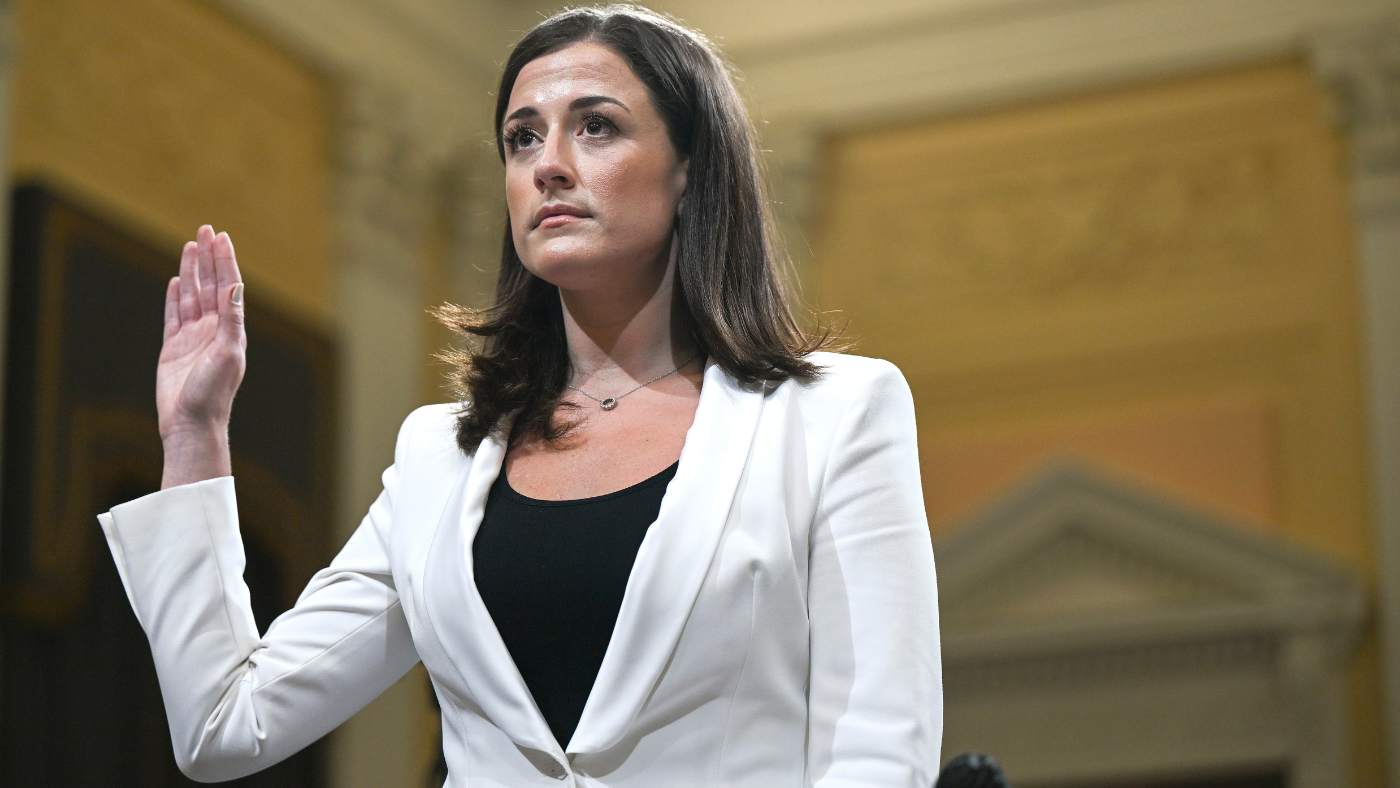‘Is shouting over the Channel really the reality of Global Britain?’
Your digest of analysis from the British and international press

- 1. After Brexit and Channel death spats with France and Germany, the shallowness of Global Britain is undeniable
- 2. Sussexit is the result of a princely sense of humour failure
- 3. Migrants are told they must earn a place in Britain. But no one should have to
- 4. Boris Johnson will again resist tough Covid curbs until the last minute – will he ever learn his lesson?
- 5. Stephen Sondheim made art that made life more real
A free daily email with the biggest news stories of the day – and the best features from TheWeek.com
You are now subscribed
Your newsletter sign-up was successful
1. After Brexit and Channel death spats with France and Germany, the shallowness of Global Britain is undeniable
Ian Birrell for The i
on snake oil salesmen
“During those far-off days when Brexit was an idea rather than a reality”, Ian Birrell liked the idea of “Global Britain, engaging with the world on its own terms as a powerful force for good”. However, as he suspected at the time, “Brexiteers sold false dreams” because “Global Britain was – like ‘levelling up’ and ‘taking back control’ – a marketing slogan in search of substance” and merely a “torrent of empty words” from Boris Johnson. The PM has, in fact, “descended into a silly slanging match on social media with France over the flotillas of small boats filled with people hoping to reach the UK,” argues the i columnist. He concludes that “at home we are led by populist hucksters who took power selling snake oil” and now “boast of British exceptionalism while corroding crucial alliances” and who “equate diplomacy with shouting over the Channel”. Birrell wonders if this is “really the reality of their Global Britain”.
The Week
Escape your echo chamber. Get the facts behind the news, plus analysis from multiple perspectives.

Sign up for The Week's Free Newsletters
From our morning news briefing to a weekly Good News Newsletter, get the best of The Week delivered directly to your inbox.
From our morning news briefing to a weekly Good News Newsletter, get the best of The Week delivered directly to your inbox.
2. Sussexit is the result of a princely sense of humour failure
Judith Woods for The Daily Telegraph
on shrill Sussexes
Megxit is a “classic neologism that, crucially, rhymes with Brexit” and follows in a longstanding tradition of newspaper wordplay about royals, writes Judith Woods. However, the term, used to describe Harry and Meghan’s departure from these shores, has not been welcomed by all. “Harry’s already failing sense of humour has chosen this hill to die upon by insisting the very word is misogynistic,” she writes, “and now the BBC has allegedly changed it to ‘Sussexit’” for their documentary on the royals this evening. Woods is aghast that with “so many major wrongs to right on this planet” such “sheer tone deaf solipsism” is “being demonstrated by two such privileged people”. Writing in The Daily Telegraph, Woods complains that “shrill arguments and peevish complaints over ‘Megxit’ undermine the ongoing battle for justice, something this giddily high-net worth pair are constantly banging on about”.
A free daily email with the biggest news stories of the day – and the best features from TheWeek.com
3. Migrants are told they must earn a place in Britain. But no one should have to
Nesrine Malik for The Guardian
on valuing values
“We don’t think of ourselves as units whose value is derived from making a measurable contribution to the economy,” writes Nesrine Malik. Instead our “sense of self” is shaped “by other people, and the rich and enriching relationships we form with them”. However, argues the Guardian columnist, our “entire immigration system and approach towards outsiders is based on reversing this definition of worth” so that people who are trying to enter the UK are “regarded as dud units of economic drag”. Malik asks readers if they have “earned” their place in the UK. “Did you, at any point, have to go through a series of obstacles, near-death experiences, homelessness and loyalty tests to win your place at the top of the human food chain?” she wonders. “It is harder to part with what you have when you believe that those who are in need of it had the same shot as you but simply didn’t pull their weight,” she writes, and “this is why people shrug and move on when others die in the cold waters of the Channel”.
4. Boris Johnson will again resist tough Covid curbs until the last minute – will he ever learn his lesson?
Andrew Grice for The Independent
on foolish promises
Although it is “early days” in the discovery of the latest new Covid variant, Andrew Grice feels that it is “revealing that Boris Johnson stopped short of activating his plan B in England” when he announced new measures on Saturday. Grice forecasts that Johnson “will again resist tough Covid curbs until the last minute” and that the timing of the variant is “awful because Johnson is now in a weaker place within his party than when restrictions were mooted in the past”. He will therefore not want any rows with “the vocal minority of Tory MPs who oppose curbs, either on libertarian grounds or out of concerns over economic harm”. He will also “be keen to avoid handing more ammunition to right-wing critics outside his party” such as Nigel Farage. The promise of no more lockdowns was a “foolish” one and “might yet be added to the government’s list of broken ones”. However, if Johnson again “holds backs on tough curbs until the very last minute” it will “undermine his claim to have learned lessons during the pandemic”.
5. Stephen Sondheim made art that made life more real
Alexandra Petri for the Washington Post
on tunes apart from life
Stephen Sondheim made writing songs look not just possible but easy, writes Alexandra Petri in The Washington Post. The American composer, who wrote the lyrics for West Side Story and Gypsy among others, created “indelible songs and lyrics that both function perfectly in the shows they call home… and work outside them”. A lot of musical theatre, especially Sondheim’s, “takes advantage of the artificiality of the form to occupy the spaces we move through too quickly”, writes Petri. Many of his “most poignant songs show people standing apart from life to contemplate it”, such as Cinderella “dithering on the steps of the palace”, or a “bride-to-be wavering on the verge of commitment”. Sondheim, who died on Friday, “must have known that he wasn’t watching the rest of the world from a window; he was opening a window for the rest of us”.
-
 How the FCC’s ‘equal time’ rule works
How the FCC’s ‘equal time’ rule worksIn the Spotlight The law is at the heart of the Colbert-CBS conflict
-
 What is the endgame in the DHS shutdown?
What is the endgame in the DHS shutdown?Today’s Big Question Democrats want to rein in ICE’s immigration crackdown
-
 ‘Poor time management isn’t just an inconvenience’
‘Poor time management isn’t just an inconvenience’Instant Opinion Opinion, comment and editorials of the day
-
 Police search for stolen toilets
Police search for stolen toiletsTall Tales And other stories from the stranger side of life
-
 ‘The UK’s malaise will not end with the Prime Minister’s exit’
‘The UK’s malaise will not end with the Prime Minister’s exit’Instant Opinion Your digest of analysis from the British and international press
-
 ‘Police tactics are not getting worse, they are simply being filmed’
‘Police tactics are not getting worse, they are simply being filmed’Instant Opinion Your digest of analysis from the British and international press
-
 ‘G7 leaders missed a golden opportunity’
‘G7 leaders missed a golden opportunity’Instant Opinion Your digest of analysis from the British and international press
-
 ‘It takes some soul searching to celebrate Canada Day’
‘It takes some soul searching to celebrate Canada Day’Instant Opinion Your digest of analysis from the British and international press
-
 ‘Breakthrough on abortion rights could be there if Biden reaches for it’
‘Breakthrough on abortion rights could be there if Biden reaches for it’Instant Opinion Your digest of analysis from the British and international press
-
 ‘If only Mark Meadows had even half Cassidy Hutchinson’s courage’
‘If only Mark Meadows had even half Cassidy Hutchinson’s courage’Instant Opinion Your digest of analysis from the British and international press
-
 ‘Boris Johnson measures success in biceps rather than brain power’
‘Boris Johnson measures success in biceps rather than brain power’Instant Opinion Your digest of analysis from the British and international press